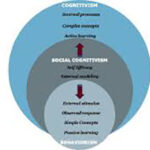Competence is a term with various definitions, generally applied on two levels. On one hand, competence refers to the qualifications or abilities of an individual. On the other hand, it can denote the authority or authorization granted to an employee to perform specific tasks such as decision-making, issuing directives, or giving orders.
Types of Competence
When competence refers to qualifications or abilities, it is often further categorized as follows:
-
Professional Competence (Expertise)
This refers to an individual’s subject-matter knowledge and the necessary expertise to handle specific tasks. Professional competence involves the ability to contribute effectively to higher-level or subordinate tasks and to apply technical knowledge in practical contexts. -
Methodological Competence
Methodological competence is the ability to independently identify and implement problem-solving approaches. This includes critical and analytical thinking, learning skills, the ability to reflect, and the adoption of alternative work methods. It involves applying structured thinking to solve complex problems. -
Social Competence
This refers to the ability to interact effectively in a group or community, including participating constructively in decision-making, engaging in interpersonal communication, and assuming responsibility within teams. -
Leadership Competence
Leadership competence is the ability to lead, influence, and motivate others. It involves demonstrating appropriate leadership behavior, asserting oneself effectively, and taking responsibility for group outcomes.
Organizational Competence
At the organizational level, competence is viewed as the combination of abilities, skills, knowledge, personality traits, and behavioral attributes necessary to perform a function effectively within an organization. This competence is foundational for fulfilling roles that contribute to achieving the organization’s strategic corporate goals.
« Back to Glossary Index





![15 Employee Offboarding Templates That Save Hours of HR Time [Free Downloads] 15 Employee Offboarding Templates That Save Hours of HR Time [Free Downloads]](https://i1.wp.com/www.hrcloud.com/hubfs/Header.png?w=150&resize=150,100&ssl=1)
